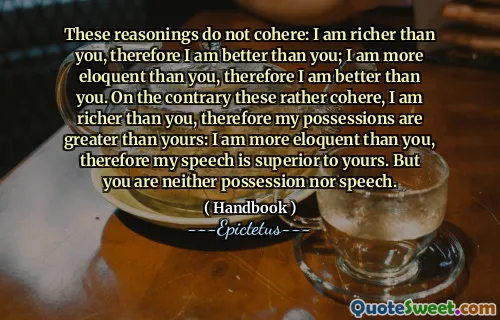
It is better to do wrong seldom and to own it, and to act right for the most part, than seldom to admit that you have done wrong and to do wrong often.
📖 Epictetus
In the quote from Epictetus's "Handbook," the author emphasizes the importance of acknowledging one's mistakes rather than frequently committing wrongdoings without accountability. He suggests that making occasional errors is acceptable as long as one is willing to admit them and learn from the experience. This reflects the value of honesty and personal integrity over the mere avoidance of mistakes.
Moreover, Epictetus advocates for striving to do what is right most of the time. He implies that the true measure of character is not the absence of wrong actions but the sincerity in recognizing and owning up to them. Therefore, it is more virtuous to err occasionally and embrace honesty than to habitually behave poorly while avoiding responsibility for those actions.











